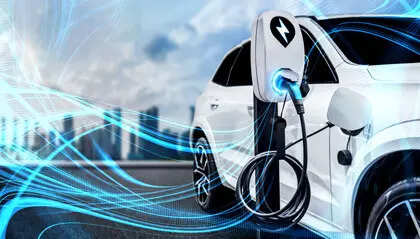
The US presidential race in the battleground state of Michigan could come down to whether the American auto capital sees electric vehicles as more of an opportunity or a threat.
While former president Donald Trump has cast the White House-backed EV transition as an existential hazard, Vice President Kamala Harris has touted major EV investments, along with backing from the United Auto Workers union.
Whether Trump or Harris’s argument carries the day in Michigan — which flipped back to Democrat Joe Biden in the 2020 election after Trump’s upset win four years earlier — could rest on how voters assess the choppy progress thus far on EVs.
GM and Ford have tempered some EV investments amid uneven consumer demand while emphasizing they are in EVs for the long haul.
As both candidates crisscross the state, their backers are also hitting the ground campaigning.
“It really feels like our jobs are on the line. Donald Trump doesn’t care about our jobs,” said Hazen Turner, a Stellantis worker who is canvassing with the UAW. “Kamala cares.”
On the other side stands Brian Pannebecker, head of the Facebook group “Auto Workers for Trump,” who warns a Harris win would doom Michigan’s industry within 10 years, leaving “electric China in charge.”
Big policy changes
At issue are Biden-Harris measures that aim to boost the adoption in the United States of EVs, which now comprise around eight percent of US sales, up from one percent in 2019, according to Cox Automotive.
The administration’s fuel economy rules require automakers to market fleets with sharply lower carbon dioxide emissions to address climate change. While the rules do not explicitly require EVs, leading automakers are investing in the technology as well as hybrids.
The other signature White House EV initiative is the 2022 Inflation Reduction Act, which pumps some USD 400 billion into low-carbon programs, including tax credits to consumers who buy EVs.
The IRA has resulted in more than USD 26 billion in clean energy investments in Michigan projects, including a grant of USD 500 million for General Motors to upgrade a Lansing plant to produce new EVs, supporting some 700 jobs, according to state officials.
While Trump has praised the EV accomplishments of billionaire mega-supporter Tesla CEO Elon Musk, the ex-president has spoken contemptuously of the Biden-Harris EV program, saying at a September event in the city of Warren, Michigan that “these cars are all going to be built in China.”
Trump has said he supports consumers’ rights to buy EVs, but would kill the electric “mandate.” His campaign calls the Biden-Harris climate agenda the “Green New Scam.”
Harris has accused Trump of misstating her stance, saying at a campaign event in Flint that she doesn’t support forcing consumers to buy EVs.
“When it came to building the cars of the future, Donald Trump sat on the sidelines and let China dominate,” Harris said.
She has also lambasted Trump’s running mate, JD Vance, who referred to the USD 500 million GM Lansing project as “table scraps.”
Tariffs
Despite the heated rhetoric about EVs, Michigan auto experts do not expect a full-scale retreat even if Trump wins, in part because significant IRA funds have gone to Republican-controlled states like Tennessee and South Carolina.
“Prospects for some dramatic reversal are not feasible,” said Mike Jackson, executive director for strategy and research at the Original Equipment Suppliers Association. “Massive amounts have already been spent.”
Jackson said Michigan must embrace EVs to avoid turning the United States into a “technology island,” but said local suppliers have been frustrated by the pace of change.
Cox Automotive economist Charlie Chesbrough said the EV investments have been a “big plus,” arguing that Michigan companies are catching up to the Chinese.
While a Trump presidency would weaken policies boosting EV incentives, the bigger difference between the candidates may be over tariffs, which would lift vehicle prices, Chesbrough said.
Economists are skeptical of Trump’s contention that extreme tariffs can be a tool to draw foreign automakers to the United States, noting major auto investments require multi-year planning.
The 2024 campaign comes amid questions facing the Detroit giants, especially Stellantis, which has cut some 1,100 jobs in the Detroit area in 2024 as it encounters pressure from Wall Street following weaker sales.
At one of his regular rallies earlier this month outside a Stellantis plant, Pannebecker and a crew of about six other MAGA-garbed enthusiasts held Trump flags as cars zoomed by.
The number of passing cars honking in support of the MAGA flags outnumbered those who sneered. But the vast majority had no response either way. That’s the group that will determine who wins Michigan in 2024.

